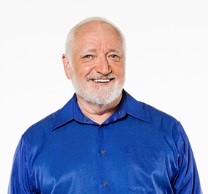REGISTER FOR THIS EVENT
VISIT THIS PAGE TO REGISTER TO ATTEND
DESCRIPTION
We leave a digital trail behind us everywhere we go: the calls we make, the emails we send, the links on which we click, the websites and documents that we retrieve. This also includes our social relationships, habits, preferences, even our movements in space and time. IDEAS, CBC RADIO ONE in partnership with the Munk School of Global Affairs at the University of Toronto weighs the opportunities, the risks—and the trade-offs—as the world of BIG DATA relentlessly changes our lives.
Monday, May 9, 2016, Part 1: The Promise and the Perils of Big Data for Business, for Consumers, and for Society
For business, the promise of BIG DATA is at least as great as that of the Internet itself. Companies can now anticipate what consumers want even before we know it ourselves. As consumers, we get more of what we want, when we want it. But we must also live under constant surveillance as companies chase down the opportunities that we create for them online.
Anita M. McGahan, Professor of Strategic Management at the Rotman School of Management, University of Toronto; Gregory Pedley, Canadian Sales Lead, Microsoft Big Data and Advanced Analytics; Ashkan Soltani, independent researcher and technologist specializing on issues relating to privacy, security, and behavioral economics, and former Chief of Technology for the Federal Trade Commission in Washington DC; and moderator Stephen Toope, Director of the Munk School of Global Affairs consider the consequences of Big Data as it changes business – and our lives – for better... and for worse.
Tuesday, May 10, 2016, Part 2: BIG DATA – or – BIG BROTHER? Citizenship and security in the Age of Big Data.
BIG DATA does not evaporate. It accumulates, creating a new, exponentially expanding system of planetary information. The Snowden/NSA revelations have shown that the U.S. and its allies’ secretive “signals intelligence agencies” routinely collect, mine and analyze this system, partly with help from the private companies that operate it. But what are the risks and trade-offs for liberty and privacy? And, who guards against abuses of power when the state watches everything and everyone, all the time?
Ann Cavoukian, Executive Director of the Privacy and Big Data Institute at Ryerson University and former Information and Privacy Commissioner (three terms) for the province of Ontario; Ronald J. Deibert, OOnt, Professor of Political Science, and Director of the Citizen Lab at the Munk School of Global Affairs; Neil Desai, executive with Magnet Forensics, a software company that provides digital forensic tools to law enforcement and national security agencies around the world; and moderator Stephen Toope, Director of the Munk School of Global Affairs, grapple with BIG DATA, national security and our rights –as citizens–in relation to the State.
ABOUT THE SPEAKERS
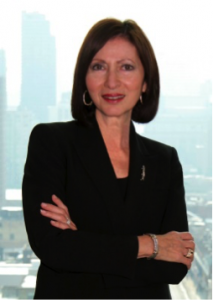 Dr. Ann Cavoukian is recognized as one of the world’s leading privacy experts. She is presently the Executive Director of Ryerson University’s Privacy and Big Data Institute. Appointed as the Information & Privacy Commissioner of Ont. in 1997, Dr. Cavoukian served an unprecedented three terms. There she created Privacy by Design, a framework that seeks to proactively embed privacy into design, thereby achieving the strongest protection possible. In October 2010, International Privacy Regulators unanimously passed a Resolution recognizing Privacy by Design as an essential component of privacy protection. Since then, PbD has been translated into 38 languages. Dr. Cavoukian has received numerous awards recognizing her leadership in privacy. Her mantra of “banish zero-sum” enables multiple interests to be served simultaneously.
Dr. Ann Cavoukian is recognized as one of the world’s leading privacy experts. She is presently the Executive Director of Ryerson University’s Privacy and Big Data Institute. Appointed as the Information & Privacy Commissioner of Ont. in 1997, Dr. Cavoukian served an unprecedented three terms. There she created Privacy by Design, a framework that seeks to proactively embed privacy into design, thereby achieving the strongest protection possible. In October 2010, International Privacy Regulators unanimously passed a Resolution recognizing Privacy by Design as an essential component of privacy protection. Since then, PbD has been translated into 38 languages. Dr. Cavoukian has received numerous awards recognizing her leadership in privacy. Her mantra of “banish zero-sum” enables multiple interests to be served simultaneously.
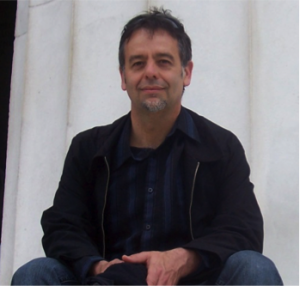 Ron Deibert, OOnt, is a Professor of Political Science, and Director of the Citizen Lab at the Munk School of Global Affairs, University of Toronto. The Citizen Lab is an interdisciplinary research and development laboratory working at the intersection of the digital technologies, global security, and human rights. He was a co-founder and a principal investigator of the OpenNet Initiative (2003-2014) and Information Warfare Monitor (2003-2012) projects. He was also was one of the founders and (former) VP of global policy and outreach for Psiphon, one of the world’s leading digital censorship circumvention services. Deibert has published three books and hundreds of articles on digital security and human rights. In 2013, he was appointed to the Order of Ontario and awarded the Queen Elizabeth II Diamond Jubilee medal, for being “among the first to recognize and take measures to mitigate growing threats to communications rights, openness and security worldwide.”
Ron Deibert, OOnt, is a Professor of Political Science, and Director of the Citizen Lab at the Munk School of Global Affairs, University of Toronto. The Citizen Lab is an interdisciplinary research and development laboratory working at the intersection of the digital technologies, global security, and human rights. He was a co-founder and a principal investigator of the OpenNet Initiative (2003-2014) and Information Warfare Monitor (2003-2012) projects. He was also was one of the founders and (former) VP of global policy and outreach for Psiphon, one of the world’s leading digital censorship circumvention services. Deibert has published three books and hundreds of articles on digital security and human rights. In 2013, he was appointed to the Order of Ontario and awarded the Queen Elizabeth II Diamond Jubilee medal, for being “among the first to recognize and take measures to mitigate growing threats to communications rights, openness and security worldwide.”
 Neil Desai is an executive with Magnet Forensics, a Waterloo, Ontario-based software company that provides digital forensic tools to law enforcement and national security agencies around the world. He previously served in senior roles with the Government of Canada including positions with Global Affairs Canada and the Prime Minister’s Office. Neil is a Fellow with the Munk School of Global Affairs at the University of Toronto and the Canadian Global Affairs Institute. He is a contributor to the Globe and Mail’s editorial page on issues ranging from competitiveness to diplomacy and national security. He holds a master’s degree from the London School of Economics and a bachelor’s degree with honours from Carleton University.
Neil Desai is an executive with Magnet Forensics, a Waterloo, Ontario-based software company that provides digital forensic tools to law enforcement and national security agencies around the world. He previously served in senior roles with the Government of Canada including positions with Global Affairs Canada and the Prime Minister’s Office. Neil is a Fellow with the Munk School of Global Affairs at the University of Toronto and the Canadian Global Affairs Institute. He is a contributor to the Globe and Mail’s editorial page on issues ranging from competitiveness to diplomacy and national security. He holds a master’s degree from the London School of Economics and a bachelor’s degree with honours from Carleton University.
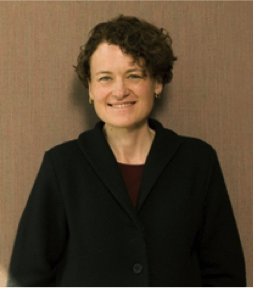 Anita M. McGahan is Professor and Rotman Chair in Management at the Rotman School of Management at the University of Toronto. She is cross appointed to the Munk School of Global Affairs and to the Medical School; is a Senior Associate at the Institute for Strategy and Competitiveness at Harvard University; and is Chief Economist at the Massachusetts General Hospital Division for Global Health and Human Rights. In 2013, she was elected by the Academy of Management’s membership to the Board of Governors and into the Presidency rotation. In 2014, she joined the MacArthur Foundation Research Network on Opening Governance. Her credits include three books and over 100 articles, case studies, notes and other published material on competitive advantage, industry evolution, and financial performance. McGahan’s current research emphasizes entrepreneurship in the public interest and innovative collaboration between public and private organizations.
Anita M. McGahan is Professor and Rotman Chair in Management at the Rotman School of Management at the University of Toronto. She is cross appointed to the Munk School of Global Affairs and to the Medical School; is a Senior Associate at the Institute for Strategy and Competitiveness at Harvard University; and is Chief Economist at the Massachusetts General Hospital Division for Global Health and Human Rights. In 2013, she was elected by the Academy of Management’s membership to the Board of Governors and into the Presidency rotation. In 2014, she joined the MacArthur Foundation Research Network on Opening Governance. Her credits include three books and over 100 articles, case studies, notes and other published material on competitive advantage, industry evolution, and financial performance. McGahan’s current research emphasizes entrepreneurship in the public interest and innovative collaboration between public and private organizations.
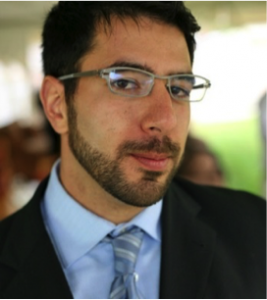 Ashkan Soltani is an independent researcher and technologist specializing in privacy, security, and behavioral economics. His work draws attention to privacy problems online, demystifies technology for the non-technically inclined, and provides data-driven insights to help inform policy. He’s previously served a brief stint as a Senior Advisor in the White House and as the Chief Technologist for the Federal Trade Commission, advising the commission on its technology related policy. Ashkan was also recognized as part of the 2014 Pulitzer Prize team for his contributions to the Washington Post’s coverage of National Security issues. He was also the primary technical consultant on the WSJ’s investigative series: “What They Know”, which was also finalist for 2012 Pulitzer Prize. Ashkan lives in Washington, DC and loves Japanese ramen.
Ashkan Soltani is an independent researcher and technologist specializing in privacy, security, and behavioral economics. His work draws attention to privacy problems online, demystifies technology for the non-technically inclined, and provides data-driven insights to help inform policy. He’s previously served a brief stint as a Senior Advisor in the White House and as the Chief Technologist for the Federal Trade Commission, advising the commission on its technology related policy. Ashkan was also recognized as part of the 2014 Pulitzer Prize team for his contributions to the Washington Post’s coverage of National Security issues. He was also the primary technical consultant on the WSJ’s investigative series: “What They Know”, which was also finalist for 2012 Pulitzer Prize. Ashkan lives in Washington, DC and loves Japanese ramen.
 John Weigelt leads Microsoft Canada’s strategic policy and technology efforts. In this role, Mr. Weigelt helps business and governments innovate with technology while avoiding the unintended consequences that might arise. He leads Canadian outreach for Economic Development, Privacy, Security, Critical Infrastructure Protection, Government 3.0, Accessibility, Environmental Sustainability and Interoperability. A strategic thinker, John has contributed to the development of international standards and guidelines, government policies, national strategies, provincial and federal legislation. These contributions range from the detailed technical specificity of protocol definition to macroeconomic principles.
John Weigelt leads Microsoft Canada’s strategic policy and technology efforts. In this role, Mr. Weigelt helps business and governments innovate with technology while avoiding the unintended consequences that might arise. He leads Canadian outreach for Economic Development, Privacy, Security, Critical Infrastructure Protection, Government 3.0, Accessibility, Environmental Sustainability and Interoperability. A strategic thinker, John has contributed to the development of international standards and guidelines, government policies, national strategies, provincial and federal legislation. These contributions range from the detailed technical specificity of protocol definition to macroeconomic principles.
EVENT HOST
Paul Kennedy (Host) has been the host of IDEAS since 1999, when he succeeded the legendary Lister Sinclair. But Paul’s association with the program goes back more than thirty years, to 1977. He has won national and international recognition for his work, including an ACTRA award for best Canadian radio documentary for a program called, War on the Home Front, co-authored with Timothy Findley; the B’nai Brith Media Human Rights Award for a series called, Nuremberg on Trial; an Armstrong Award presented by Columbia University. In 2005, he was awarded the Woods Hole Oceanographic Institution Special Citation for Excellence in Ocean Science Journalism for his eight-part series, “Learning from the Oceans”.
MODERATOR
 Professor Stephen J. Toope is Director of the Munk School of Global Affairs. Before joining the Munk School in January 2015, Professor Toope was President of the University of British Columbia from 2006 to 2014. He represented Western Europe and North America on the UN Working Group on Enforced or Involuntary Disappearances from 2002-2007. He continues to conduct research on many aspects of international law and is currently working on issues of continuity and change in international law, and the origins of international obligation in international society. Before joining UBC, Toope was President of the Pierre Elliott Trudeau Foundation, and Dean of Law at McGill. A Canadian citizen, Professor Toope earned his PhD from Trinity College, Cambridge, his degrees in common law (LLB) and civil law (BCL) with honours from McGill University, and graduated magna cum laude with his AB in History and Literature from Harvard University
Professor Stephen J. Toope is Director of the Munk School of Global Affairs. Before joining the Munk School in January 2015, Professor Toope was President of the University of British Columbia from 2006 to 2014. He represented Western Europe and North America on the UN Working Group on Enforced or Involuntary Disappearances from 2002-2007. He continues to conduct research on many aspects of international law and is currently working on issues of continuity and change in international law, and the origins of international obligation in international society. Before joining UBC, Toope was President of the Pierre Elliott Trudeau Foundation, and Dean of Law at McGill. A Canadian citizen, Professor Toope earned his PhD from Trinity College, Cambridge, his degrees in common law (LLB) and civil law (BCL) with honours from McGill University, and graduated magna cum laude with his AB in History and Literature from Harvard University
